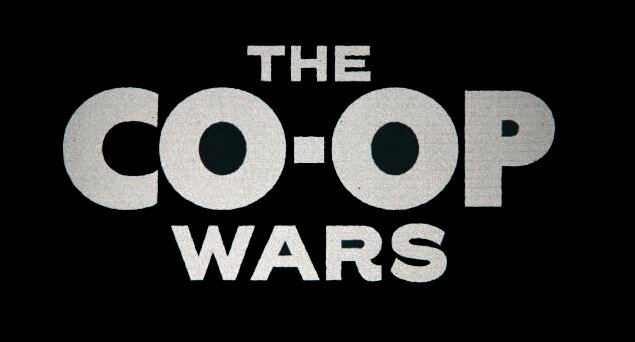Sometimes when we did interviews for The Co-op Wars, we ran into stories that make unexpected connections. One of the best of these was told to us by Dean Zimmerman, after some prodding by his wife, Jenny Heiser, about his participation in the Mississippi Freedom Summer in 1964. It seems that if things had gone a little differently, we might have been talking about the murders of Chaney, Zimmerman and Schwerner and the Twin Cities would have lost an influential co-op activist and future city council member.
This story also makes clear the connection between the civil rights and cooperative movements. The movement for African-American Civil Rights radicalized and inspired many young people who went on to be involved in activism against the Vietnam War and in the creation of the food co-ops. And this background also caused many activists to be discontent when the co-ops began to form along racial lines. This was one of the main points of tension that we focus on in The Co-op Wars, along with the issue of class inclusion.
These are tensions that have not gone away in the food co-op movement. As the largely college-educated counterculture youth matured into adult professionals and the natural foods movement evolved into a mature industry, the product mix at co-ops shifted away from bulk to packaged foods and prices went up. This was reinforced by the fact that members had less free time and were less focused on their social lives and the co-ops became more complex businesses, so the co-ops could no longer rely on volunteer or very low-wage labor and had to professionalize.
This professionalization has allowed the co-ops to serve many more people, but they cannot sell good food for the same prices that corporate stores sell food of lesser quality, so some see them as “elitist.” So how can co-ops serve people with low incomes? How do they break out of the (mostly white) networks of relationships to make connections across racial lines, both as retailers and employers? These are the questions The Co-op Wars seeks to raise and we look forward to discussing with our audience.
